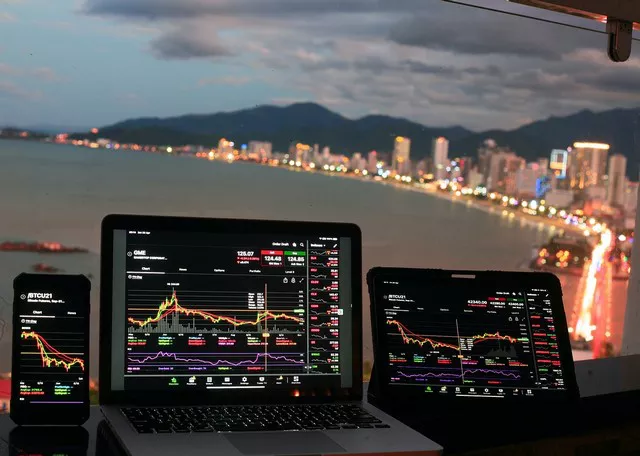Futures markets are essential hubs of economic activity, providing traders and investors with opportunities to speculate on price movements, hedge against risks, and gain exposure to various asset classes. While traditional stock markets operate during specific hours, futures markets often offer extended trading hours to accommodate participants across different time zones. This article delves into futures contracts that trade 24 hours a day, examining their significance, characteristics, and implications for market participants.
Introduction to 24-Hour Futures Trading
Futures markets facilitate the trading of standardized contracts that obligate parties to buy or sell assets at predetermined prices and dates. Unlike stock markets, which have fixed trading hours, many futures contracts offer round-the-clock trading, allowing participants to access markets at any time of day or night.
Criteria for 24-Hour Trading
Global Market Demand
Contracts that trade 24 hours a day often cater to global market demand, accommodating participants from different regions and time zones. With increased globalization and interconnectedness, round-the-clock trading has become essential for serving the needs of diverse market participants.
Liquidity and Trading Volume
Futures contracts with high liquidity and trading volumes are more likely to offer 24-hour trading. Market participants seek contracts with ample liquidity to ensure efficient order execution and minimal slippage, making round-the-clock trading desirable for highly traded contracts.
Asset Class and Market Dynamics
Certain asset classes and markets are better suited for 24-hour trading based on their characteristics and market dynamics. For example, currency markets (forex), energy commodities, and some stock index futures are known for their global nature and round-the-clock demand, making them suitable candidates for extended trading hours.
See Also: Is it easy to make money with futures?
Futures Contracts That Trade 24 Hours
E-mini S&P 500 Futures (ES)
E-mini S&P 500 futures, based on the Standard & Poor’s 500 Index, are among the most actively traded futures contracts globally. They offer 24-hour trading on the CME Group’s Globex electronic trading platform, allowing participants to access equity market exposure around the clock.
Eurodollar Futures (GE)
Eurodollar futures contracts, tied to U.S. dollar-denominated deposits held outside the United States, also trade 24 hours a day. These contracts are popular among traders seeking exposure to interest rate markets and liquidity in global financial markets.
Crude Oil Futures (CL)
Crude oil futures contracts, reflecting the price of crude oil, are actively traded around the clock due to the commodity’s significance in global energy markets. Traders can access crude oil futures trading on various exchanges, including the CME Group and ICE Futures.
Gold Futures (GC)
Gold futures contracts, representing the price of gold bullion, are available for trading 24 hours a day on multiple exchanges worldwide. Gold’s status as a safe-haven asset and its global appeal contribute to round-the-clock demand for gold futures contracts.
Forex Futures
Currency futures, traded on forex exchanges such as the CME Group and ICE Futures, offer 24-hour trading to accommodate participants in different time zones. Major currency pairs, including EUR/USD, GBP/USD, and USD/JPY, are actively traded throughout the day and night.
Factors Driving 24-Hour Trading
Globalization and Connectivity
Advancements in technology and telecommunications have facilitated round-the-clock trading by connecting participants across the globe. Globalization has increased the interconnectedness of financial markets, driving demand for extended trading hours to accommodate diverse market participants.
Market Access and Convenience
24-hour trading offers market participants greater flexibility and convenience in accessing futures markets. Traders can react to news events, economic releases, and market developments in real time, regardless of their location or time zone, enhancing market efficiency and liquidity.
Arbitrage Opportunities
Round-the-clock trading allows market participants to capitalize on arbitrage opportunities arising from price disparities between different trading sessions. Arbitrageurs exploit price differentials by buying low and selling high across different markets, contributing to price convergence and market efficiency.
Implications for Traders and Investors
Increased Trading Opportunities
24-hour trading provides traders with increased opportunities to capitalize on price movements and implement trading strategies. Extended trading hours allow traders to react to news events and market developments outside of traditional trading hours, potentially enhancing trading returns.
Enhanced Market Liquidity
Round-the-clock trading contributes to enhanced market liquidity and depth, as participants from different time zones can interact and transact with each other continuously. Liquidity benefits traders by reducing bid-ask spreads, minimizing slippage, and improving order execution quality.
Risk Management Considerations
While 24-hour trading offers benefits, it also entails risks for traders and investors. Continuous trading can lead to increased market volatility and price fluctuations, posing challenges for risk management and position sizing. Traders must implement robust risk management strategies to mitigate potential losses.
Conclusion
Futures contracts that trade 24 hours a day play a crucial role in global financial markets, offering increased accessibility, liquidity, and trading opportunities for participants worldwide. By accommodating diverse market participants and catering to global demand, round-the-clock trading enhances market efficiency, price discovery, and liquidity in futures markets. While 24-hour trading presents benefits for traders and investors, it also requires careful risk management and adaptation to navigate the challenges of continuous market activity. As technology continues to advance and markets become increasingly interconnected, 24-hour trading is expected to remain a prominent feature of futures markets, shaping the landscape of global finance for years to come.


